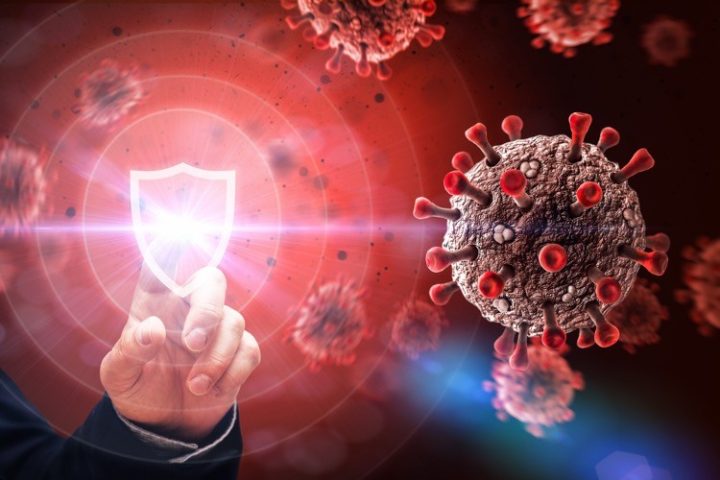
Researchers from the Washington University School of Medicine in St. Louis have found that individuals who recover from mild cases of COVID-19 have long-lasting — perhaps even lifetime — immunity from the virus.
In a study published in the journal Nature, the researchers found that while the number of immune cells circulating in a COVID-19 patient’s bloodstream naturally diminishes after the virus has been defeated, they nevertheless persist at a level sufficient to ward off future infections for years to come.
“Last fall, there were reports that antibodies wane quickly after infection with the virus that causes COVID-19, and mainstream media interpreted that to mean that immunity was not long-lived,” senior author Ali Ellebedy, an associate professor of pathology and immunology, of medicine, and of molecular microbiology, said in a university press release. “But that’s a misinterpretation of the data. It’s normal for antibody levels to go down after acute infection, but they don’t go down to zero; they plateau. Here, we found antibody-producing cells in people 11 months after first symptoms. These cells will live and produce antibodies for the rest of people’s lives. That’s strong evidence for long-lasting immunity.”
In other words, as it has done throughout the pandemic, the mainstream media twisted the evidence to fit its preordained conclusion that COVID-19 could not be stopped short of a (hastily concocted) vaccine. Clearly, that is not the case.
According to the press release:
During a viral infection, antibody-producing immune cells rapidly multiply and circulate in the blood, driving antibody levels sky-high. Once the infection is resolved, most such cells die off, and blood antibody levels drop. A small population of antibody-producing cells, called long-lived plasma cells, migrate to the bone marrow and settle in, where they continually secrete low levels of antibodies into the bloodstream to help guard against another encounter with the virus.
Since the researchers already had 77 former COVID-19 patients, most of whom had experienced mild symptoms, giving blood samples at regular intervals, they began taking bone-marrow samples from some of them. Eighteen patients provided bone-marrow samples seven or eight months after infection; four months later, five of those same patients gave a second sample. Researchers also obtained samples from 11 people who had never been infected with the virus.
COVID-19 patients’ blood antibody levels dropped significantly over the study period, though even 11 months after infection, some could still be detected. In addition, 15 of the bone-marrow samples from formerly infected individuals contained antibody-producing cells targeting SARS-CoV-2, and such cells continued to be found in the five follow-up samples. Not one of the samples from never-infected individuals contained such cells.
“People with mild cases of COVID-19 clear the virus from their bodies two to three weeks after infection, so there would be no virus driving an active immune response seven or 11 months after infection,” Ellebedy said. “These cells are not dividing. They are quiescent, just sitting in the bone marrow and secreting antibodies. They have been doing that ever since the infection resolved, and they will continue doing that indefinitely.”
Does this mean that asymptomatic individuals and those with serious cases are also immune to further infection? The researchers “speculated” that it was true of asymptomatic persons but were somewhat less sure of whether it was true of those who had had serious cases. Much, in such cases, would depend on the presence of inflammation, which is both a significant contributor to COVID-19 and an inhibitor of immune responses.
Given that the vast majority of people who get COVID-19 have either no or mild symptoms and that at least some who have serious symptoms are also likely to develop immunity to the virus, the push to vaccinate the world — particularly those who have already had the virus — seems more than a little suspect. Moreover, the major public health bodies’ dismissals of natural immunity in favor of vaccine-acquired immunity appear to be unwarranted, especially since more than one study has found that the former is superior to the latter. The vaccines’ long-term effects, furthermore, remain unknown.
One thing, however, is certain: Everyone who criticized (or worse) Senator Rand Paul (R-Ky.) for declining a vaccine because he’s already had COVID-19 owes him an apology.



